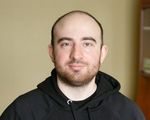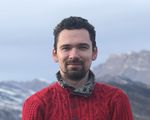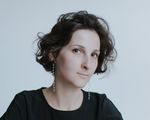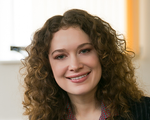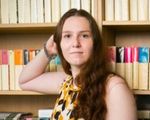About Success Builder
How do you find your place in life? How do you find something to do that both comes naturally to you and makes you happy? The answer is that you have to apply the knowledge you’ve gained from university and from life itself correctly. The Success Builder Project features HSE University graduates who have discovered themselves through an interesting business or an unexpected profession. The protagonists share their experiences and lessons learnt and talk about how they’ve made the most of the opportunities they were given.
HSE graduate Eduard Sosnin has recently taken office as Mayor of Perm, a city with a population of one million and tremendous industrial potential. In this interview with Success Builder, he shares how the university played a pivotal role in helping him establish a successful business, his reasons for transitioning from business to civil service, and the primary objectives that must be addressed by the head of administration in a major metropolis.
Why did you decide to enrol in HSE University in Perm after school? What was the key factor in your choice?
It was in 1999, a year when graduating from high school with a silver medal enabled you to enrol in a university based on the results of a single entrance exam. As a silver medallist, I chose mathematics as my entrance exam subject and, simultaneously, formulated my career aspirations. Rather than delving into abstract concepts, I wanted to concentrate on practical and applicable subjects; therefore, I opted for economics as my field of study.
I received acceptance offers from three universities, but ultimately chose HSE University due to its reputation as the most advanced, dynamic, and progressive institution in all aspects. When my parents and I visited the HSE Admissions Office to submit my application, the first thing that left a strong impression on me was the redesigned appearance of the space. Indeed, during the late 1990s, one could hardly expect Russian universities to provide a learning environment that was thoughtfully organised in accordance with the highest international standards. However, drab interiors do little to inspire student motivation. The uplifting atmosphere on the floors and in the dining hall set HSE University apart in a favourable way from other institutions. I made my choice.
What was your experience of studying at HSE University?
Studying at HSE University was fascinating due to the novelty and excellence evident in virtually everything. Certain subjects posed a challenge due to consistently high requirements, and the innovative method of knowledge assessment was unprecedented for Russia. At that time, HSE University was the only institution in the country using the testing system, which has since become the standard for universities. This objective and highly effective approach to assessing knowledge enables students to promptly identify and address gaps in their learning, as intensive study across various disciplines is not feasible without a solid foundation of knowledge.
Even when I struggled with certain aspects of my studies, I was not discouraged and was still content, being certain that I had made the right choices in terms of field of study, university, and profession, and that HSE University would provide me with the best foundation for my career.
Indeed, my career has always been in the field I studied. In general, HSE University is not just a place to obtain a degree; it is a breeding ground for highly motivated and dedicated professionals.
My fascination with the practical aspect of economics served as my primary source of inspiration, energy, and determination throughout my studies. Once I took up employment, my desire to apply in practice what I had learned grew even stronger. From my very first job assignment, I could truly appreciate the exceptional quality and practical value of the education I had received at HSE University.
What motivated you to go to Moscow and enrol in a master's programme after completing your bachelor's?
I wanted to combine my economics knowledge with a grasp of business logic and learn the skills required to reach a managerial level. To achieve this, I needed to gain a deeper understanding of management. Fortunately, HSE University in Moscow has consistently allocated a number of state-funded places for graduates of its campuses. I applied for the Master's in General and Strategic Management programme and worked really hard to pass the admission competition and several exams.
After graduating from HSE University, you enjoyed a successful career in Moscow. How did this experience benefit you, and what prompted your decision to return to Perm?
Certainly, the sheer scale of Moscow and the opportunities it offers can, and indeed do, alter the trajectory of one’s career. I wanted to challenge myself by taking on a heavier workload and greater responsibilities, while also exploring new avenues to prove my worth and attain success. I took up employment in the second year of my master's programme and, within a relatively short period, progressed from the role of a purchasing manager to that of a company CEO overseeing more than a hundred employees. During my deep dive into this management role, I came to the realisation that leveraging my experience and expertise by starting my own business would be the best course of action.
After pondering the idea of launching my own business for quite a while, I eventually started by establishing a small company specialising in the manufacture of household wooden products. One of my primary objectives was to assess the economic advantages of establishing a factory in one of two possible locations: either in close proximity to consumers or in close proximity to raw materials. I made the decision to set up a production facility in my hometown of Lysva, Perm Region, having full confidence in the results of my calculations and analysis.
I made numerous flights between Moscow, where I was based, and Perm, and I was convinced that my skills and expertise were adequate to ensure the success of my start-up on the first attempt. However, any accomplished entrepreneur understands that knowledge and skills alone are insufficient—one must be prepared to make a few mistakes and apply the lessons learned to discover the right solutions. The manufacturing process demanded my constant presence, so my family and I made the decision to return to the Perm region and build our business using local resources. Soon, I expanded with two additional production lines for plastic and glass, as well as a logistics company responsible for distributing products from the Perm region to federal-level networks. Drawing from my own experience, I can confidently state that one can build a successful business or professional career not only in Moscow, but in other locations as well. The crucial factor is to keep seeking opportunities and, naturally, to make precise calculations. However, with the appropriate capabilities, knowledge, and skills, success in trade or production can be achieved anywhere in Russia.
What was the most significant lesson or insight from your university experience that has contributed to your success in business?
The most valuable lesson HSE taught me is how to learn effectively. This is an integral part HSE University's culture—simply attending lectures and seminars has never sufficed for building your knowledge and skills. You must engage with the material, read, understand, and comprehend it first-hand. This ideology has been deeply ingrained in me and drives me to continually advance professionally, never settling for what has been accomplished, and always striving to acquire knowledge from all available sources. This can significantly improve the quality of the solutions one implements. Equally important are leadership skills and the ability to make prompt decisions, which HSE University also cultivates. I vividly remember the discussion club and extracurricular activities such as KVN, and the introduction to project-based learning and teamwork from the very first year of study, which was a remarkable experience for me, coming from a Soviet educational background. While this approach may be considered commonplace for many undergraduates today, this was not always the case, and it only became a part of my life when I enrolled at HSE University.
Building communication competences has also been of paramount importance to me, as I continue to use them as essential tools in my daily life and work. At HSE University, there were numerous activities, fields of study, and subjects where you were actively encouraged to voice your opinions, present arguments, engage in debates, and collaborate within teams. This environment equipped you with the necessary tools and immersed you in an atmosphere that fostered your communication skills. Going back to why my business took off, back then, we were a little-known start-up, a local producer of wooden hangers, which was an item usually imported from China at the time. What made a difference for me was the ability to establish rapport and find common ground with retail chain buyers.
Certainly, HSE University also provided numerous opportunities to foster friendships and expand my personal network. I continue to maintain active connections with former fellow students with whom I shared a dorm and attended classes in both Perm and Moscow
They have since established careers in a wide range of fields, from banking to real estate development. Among other benefits, networking with them helps me gain valuable information that aids in making decisions in my professional activities.
You said you lived in a dormitory. What specific memories from this experience stand out to you?
Yes, I lived in a dormitory, and one of my most vivid memories is the way we prepared for exams together as a group. We were studying together in remarkable unity. I am convinced that living in a student dorm can offer a profound life experience and is something that every self-respecting student should undergo. My warmest impressions and memories are associated with the place. I am sure that the quality of dormitories will improve, and the word 'dorm' will acquire an increasingly positive connotation over time.
Following your success as an entrepreneur, your subsequent career move was to enter civil service. What motivated your decision to leave the business world, and how demanding was the process of adaptation to new expectations and responsibilities?
It all started in 2018, when I learned about the launch of the Leaders of Russia Competition. Although my company was thriving, I felt restricted by staying in Lysva. Certainly, there is always potential for growth no matter where you are, but I yearned for more and felt the energy to pursue it. Participating in this competition provided a significant boost to my professional and personal growth. I made it from the regional stage to the semi-finals held in Nizhny Novgorod, where I saw 300 other participants who were all active, enthusiastic, and engaged in diverse career paths, including civil service, major corporations, private enterprises, and state-supported institutions. This made me think, 'Why couldn't I be one of them?' I felt an urge to apply my knowledge, skills, and energy on a broader scale, extending beyond the limits of a single small town. The Leaders of Russia Competition marked a crucial milestone for me. I returned home as a winner, with the realisation that I didn't have to limit myself to my current business and position but could aspire to achieve more. As a result, I became actively engaged in the life of my region and the broader society and joined the regional branch of Opora Russia (a nationwide non-governmental organisation of small and medium-sized businesses—ed.). Subsequently, I received an offer to join the government in the capacity of Minister of Economic Development and Investment of the Perm Region. Much like when I enrolled at HSE University, I didn't hesitate for a second before accepting the offer because it was novel, unfamiliar, and therefore, exciting. I made the transition from the business community, where it was acceptable and even expected to criticise the government for making life difficult for us, to the other side of the spectrum. The effect from this shift in perspective was profound—I could now perceive many things differently. I also hope that I was able to contribute some valuable insights to enhance the Ministry's operations. For instance, we bolstered our support for small and medium-sized businesses, leading to a notable increase in the number of SMEs in our region, and we currently rank sixth among Russian regions in this regard.
I have recently taken on the role of the head of the administration in Perm. This is a new challenge for me. While serving in the regional government, my focus was on overarching policies in areas such as taxation, regional socio-economic development, exports, and investments. Now, I need to shift my attention to the economy and governance of a city with over a million inhabitants.
What are your primary goals as Mayor?
It might sound cliché, but the primary goal for the city authorities is to ensure the well-being and comfort of the residents. Perm boasts vast economic potential stemming from its three-centuries-old industrial foundations. However, we aim to make the city a comfortable place to live, not solely a hub for earning money. I aspire for every resident of Perm to spend their money locally, supporting not only cafes and restaurants but also diverse recreational venues like spa facilities, family-friendly spaces, and city parks. I have lived in Perm for a long time and have witnessed the city's transformation for the better, particularly over the last two or three years. The pace at which these positive changes have occurred is truly remarkable. The primary objective today is to maintain this momentum and transform Perm into a modern city, not only in the city centre, but in all its neighbourhoods.
How can this be accomplished? By establishing the right priorities for the city administration to focus on. It is my responsibility to set these priorities and ensure that ongoing projects are successfully completed. The objectives are clear and straightforward, yet the most significant challenge lies in creating a system that will operate efficiently for many years to the advantage of all members of the urban community. Residents should have the ability to exit their homes through a clean entrance and well-maintained courtyard, walk along well-lit, litter-free streets and pristine embankments, travel on comfortable city buses, and more. Our objective is to transform Perm into a prosperous, influential city—a place where not only parents and the older generation can enjoy a good life, but also a city where young people can choose to study, stay, and fulfil their potential.
There are ample opportunities for boosting the city's economy as well. We work to promote these opportunities, to highlight platforms for setting up new manufacturing enterprises, services, and creative industries. Statistics indicate that only 20% of local entrepreneurs take advantage of the government support available to them, while the majority do not use any such measures. I officially declare that accessing and making use of the available support measures is not only possible but also highly recommended for all entrepreneurs, as the city government is dedicated to fostering the growth of local businesses. We must convey to entrepreneurs that accepting financial assistance from the government in the form of subsidies is a standard and beneficial practice. As long as you operate officially within the law, you will only face some additional reporting requirements but no other complications. Understandably, few people will take our word for it, but as the first few entrepreneurs benefit from the subsidies, others will learn about them through word of mouth, and over time, this will change the relationship between business and government. The rules of the game are established, they are transparent, comprehensible, and applicable to all.
Perm is renowned for its extensive production facilities, which are unmatched not only in the Urals but also in the entire country. Our approach is to engage Perm's large companies in cooperation with smaller enterprises. It often happens that large companies in Perm procure items such as personal protective equipment from suppliers in Moscow, even though the same products, but cheaper and of superior quality, can be obtained from local manufacturers. This type of cooperation is crucial. Entrepreneurs may not always network directly with each other, so it is essential to establish an environment that encourages and facilitates such networking. While easy to implement, this networking space will truly help local business grow.
A world-class inter-university campus is being built in Perm as part of a federal project. How important is this for the city?
This is a fundamentally important project for the city. The inter-university campus in Perm will be unique in the sense that the region's leading educational institutions will jointly use the campus facilities. The new campus is designed to house five thousand students who will both live and study here. This development is expected to provide a significant boost to education, science, the economy, and youth policies in the region. Currently, we lack sufficient space to accommodate all potential students, especially those from other countries and various Russian regions, but the new campus will enable them to live in Perm during their studies. The campus will serve as a central point of attraction, offering a comprehensive environment where students can live, study, engage in research, unwind, and grow as individuals. The idea is to inspire their affection for Perm and the region, so they may consider staying here after completing their studies.
We have extensively discussed your work and various projects, but what do you usually do to unwind and recharge your batteries?
I unwind in a variety of ways. I have recently come to realise that the most effective method for me to relax is by participating in some active pastimes. This could involve rafting, fishing, skiing, or simply embarking on a journey to the northern parts of the Perm region, such as Solikamsk and further north. This is the most cherished form of relaxation for me. I also derive a great deal of positive emotions from spending time with friends. My family is always close by, offering support in all my undertakings, which is crucial to me.
In general, it is essential to maintain a healthy work-life balance. I have gradually reconsidered my approach to achieving this balance. For instance, I no longer work until 10 or 11 pm, because it is unproductive. I prioritise regular exercise and take breaks to ensure that I make the most efficient use of my 8 to 10 working hours. I find this approach more effective than expending my efforts and energy exclusively on work every day.
On September 29 of this year, HSE University in Perm turns 25. What would you wish your alma mater on this anniversary?
Dear teachers, professors, students, and rectors of my alma mater: I hope that you and HSE University share only warm feelings, that students enjoy their studies, that lecturers and administrators look forward to each workday as a holiday, and that everyone at HSE can find an outlet for self-fulfilment. That’s how it was when I studied there, that’s how it is today, and may it always be that way. I am confident that HSE will always be the best university in the country. This is demonstrated by the countless great professionals who have been educated at HSE University and are now contributing to the development of our country. HSE University lays the proper foundations for its students’ future accomplishments, as I know from my own experience. I wish you creative success, grateful students, and the realisation of your most ambitious aspirations—which, I am sure, you all have. HSE University must continue to grow and expand, because there is a need for more positive influence in the world. Happy anniversary!










